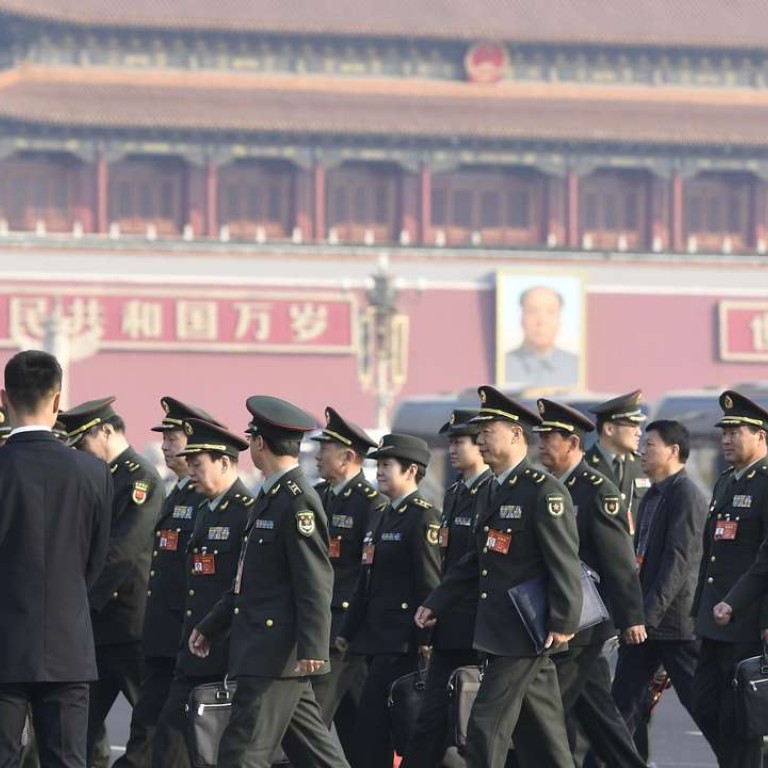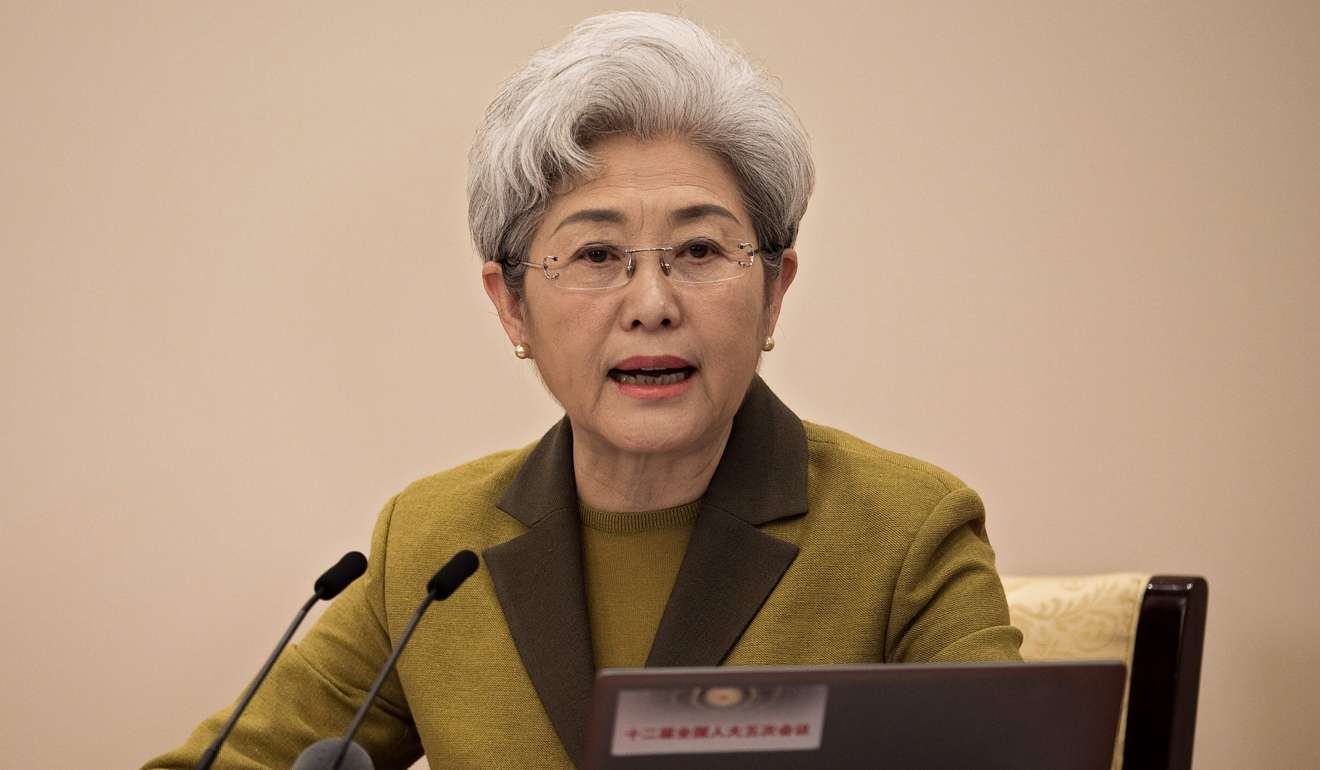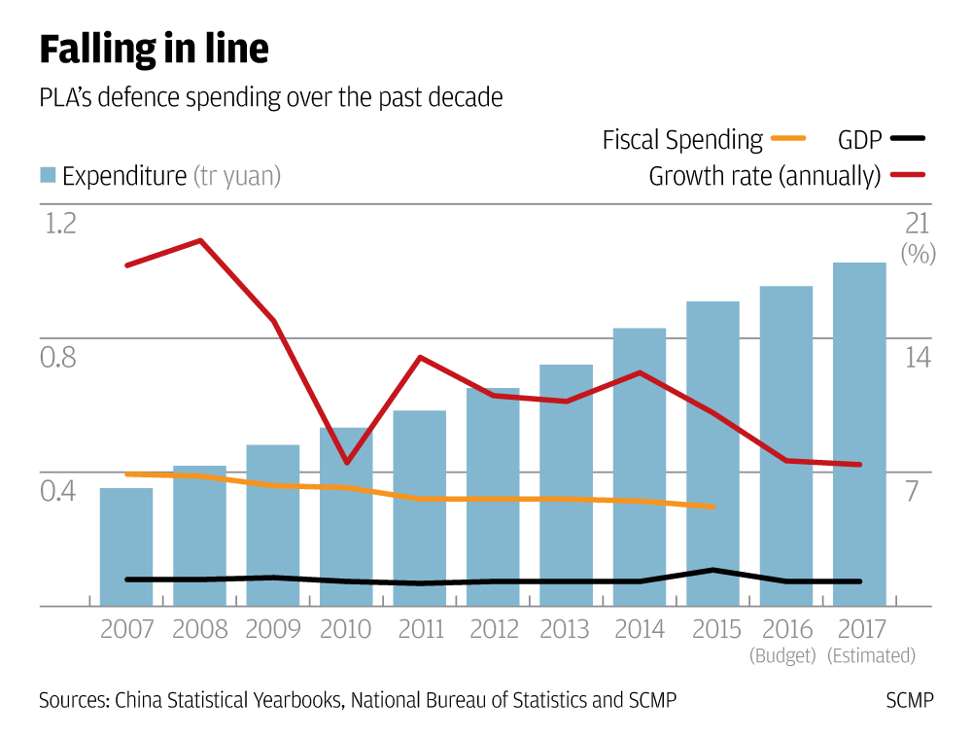
China raises military budget by 7pc amid slower economic growth
Spending represents 1.3pc of GDP, in line with previous years, legislature spokeswoman says, but experts point to significant expenditures that are off the books
China will increase its defence budget by about 7 per cent this year, the smallest boost since 2010, a move which analysts said reflected the nation’s continuing economic slowdown.
The announcement of the figure on Saturday by Fu Ying, spokeswoman of the National People’s Congress, came amid rising calls by military officers for defence spending to be boosted by at least 10 per cent as China seeks to improve the fighting capability of the People’s Liberation Army.

Fu told a press conference ahead of the opening of China’s annual legislature session that defence spending would remain at about 1.3 per cent of gross domestic product.
She said the PLA faced daunting tasks in protecting China’s territorial sovereignty and maintaining regional security, and preventing foreign forces from intervening in the South China Sea disputes.

US President Donald Trump has proposed a 10 per cent jump in defence spending this year, upgrading the US military’s hardware and manpower.
Xu Guangyu, a retired PLA major general, said that during peace time, China’s military spending would not exceed its
gross domestic product growth rate by too much.
China’s 2017 GDP target, which will be unveiled by Premier Li Keqiang on Sunday, is expected to be about 6.5 per cent, according to economists and academics.
“China will just focus on narrowing the gap between the US’ hardware build-up, but not quantity. For example, China needs aircraft carriers, but it will just build four or five, it will not definitely follow the US to have up to one dozen,” Xu said.
No breakdown was given of how the military budget is spent, but a policy document said it covered military personnel’s salaries and housing, plus the costs of training, exercises and arms and equipment.
China’s leaders sending ‘confusing, inconsistent’ messages over economic reform
Andrei Chang, editor-in-chief of the Canadian-based Kanwa Asian Defence monthly, said China’s actual defence spending might be triple the official number given. “China has spent several billions of US dollar to build artificial islands in the South China Sea for military purpose, but the funding was categorised as Hainan province’s local development,” Chang said. China has built up to 18 Aegis-class missile destroyers, the Type 052C or 052D, two home-made aircraft carriers as well as other advanced weapons.
But Xu said budgets for advanced weapons had been counted in past years’ spending, and China’s development cost was less than that of Western nations.
Dr Rajeev Ranjan Chaturvedy, a research associate at the Institute of South Asian Studies at the National University of Singapore, said it was not appropriate to compare the two countries’ defence budget. “Threat assessment and priorities are different for both the countries. The military will always complain of a lack of funds, but political leaders try to strike a balance among various priorities,” he said.
“There are many disguised allocations and expenses which rarely get reflected as part of defence budget. Do not expect China to match US, nevertheless Chinese Military modernisation and reforms will continue as planned.”

